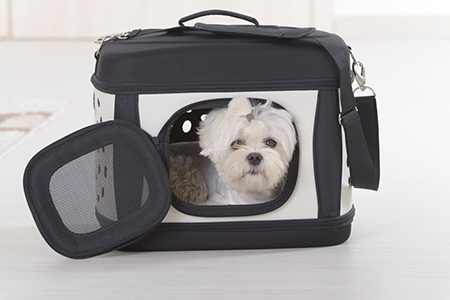
Preparing your pet for an emergency is an extremely important part of pet ownership, but can be easy to forget about or overlook. Don’t wait until your family needs to evacuate due to a disaster, or until your pet becomes lost or injured – start preparing today with the tips below.
Microchip Your Pet
Microchipping your pet can make the difference between whether or not they return home safely after becoming lost. It’s a quick and easy procedure that can save your pet’s life and prevent heartbreak. Contact your veterinarian as soon as possible if you are interested in microchipping your pet.
After the microchip is implanted, it’s important to register the microchip and make sure your associated contact information is accurate. If the pet is ever rehomed or if your family moves to a new address or acquires new telephone numbers, the microchip information will need to be updated accordingly. Outdated information is useless for finding your lost pet.
Create a Pet Evacuation Kit
In the event that your family ever needs to evacuate, prepare an easy-to-carry, waterproof go-bag stocked with pet supplies. Store the bag close to an exit like an entryway closet or a laundry room that is adjacent to the garage for easy access.
Evacuation Kit Checklist:
- A two-week supply of medicine*
- Collar or harness with ID tag & a leash
- Current picture of your pet
- Familiar items (toys, treats, etc.)
- At least 3-7 days of food*
- Plenty of water
- Crate or pet carrier
- First aid kit
- Sanitation items (litter, trash bags, paper towels)
- Extra blanket or bedding
*These items must be rotated and replaced to ensure they don’t expire.
Caring for Your Pet After a Disaster
After any disaster, be sure to survey the area inside and out to identify sharp objects or other hazards that may harm people and pets. Comforting each other is also important. Petting and snuggling with your dog or cat will help reduce any anxiety for the whole family. Make sure to examine your pet closely; if you observe injuries or any signs of stress, discomfort or illness, contact your veterinarian to schedule a checkup.
If your pet has become lost, visit your local animal control or shelter daily. Some of these agencies also use social media to post information regarding lost and found animals. Post images of your lost pet on social media and your local neighborhood app. If you have microchipped your pet, notify the microchip registry that your pet is missing.